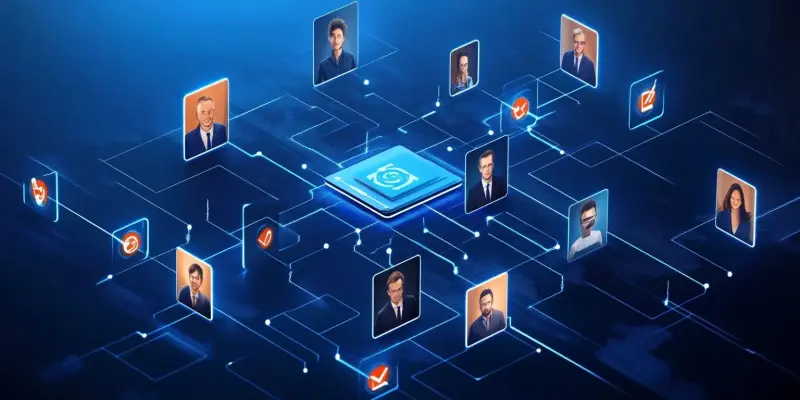The ever-evolving job market is witnessing a paradigm shift as artificial intelligence (AI) skills become highly coveted, surpassing the value of traditional degrees. AI skills now command significant wage premiums, outpacing those associated with most university degrees. From 2018 to 2023, demand for AI roles in the UK surged by 21% as a share of all job vacancies, contrasting with a 15% decline in the necessity for university degrees in these positions. This trend illustrates the growing importance that employers place on industry-specific expertise and practical experience in AI over conventional educational qualifications.
Growing Wage Premiums for AI Skills
In examining the labor market, the study concluded that roles requiring AI skills offered a wage premium of 23%, significantly higher than the premiums for most degrees. Only those holding PhDs enjoyed a higher wage premium at 33%, while master’s degrees provided a lesser wage premium of 13%. This discrepancy underlines a major shift in employer priorities towards practical knowledge and real-world experience in AI. Data was meticulously gathered from approximately 11 million job vacancies in the UK between 2018 and mid-2024, showcasing a robust analysis.
The findings raise questions about the traditional pathway of achieving higher pay through university education, particularly among AI professionals. Fabian Stephany, one of the study’s co-authors, emphasized the significance of industry-specific skills and hands-on experience. Employers have demonstrated a clear preference for graduates possessing practical AI expertise, often rewarding such skills with higher salaries. Further evidence from a published study in Oxford Economic Papers revealed intriguing wage dynamics based on AI skills; men with AI skills earned wages 12% higher, while women enjoyed a 13% increase compared to peers without such expertise.
Embracing Skills-Based Hiring
A notable recommendation from Fabian Stephany revolves around embracing micro-certificates and credentialing to acknowledge skills gained outside formal education. Such a skills-first hiring approach is proposed to expand the candidate pool and bridge the existing AI talent gap. This approach could foster greater diversity and inclusivity in workplaces by appreciating a variety of social backgrounds and perspectives.
Nevertheless, transitioning to a skills-first hiring model presents its own set of challenges. A 2024 report from The Burning Glass Institute and Harvard Business School exposed that even though nearly 45% of companies pledged to prioritize skills over degrees, their hiring practices remained largely unchanged. This indicates that shifting hiring norms necessitates a clear vision, robust leadership, and adequate budgetary support. Companies will need to invest in training HR teams, refining job descriptions, and selecting assessment tools that accurately gauge candidates’ skill levels to ensure successful implementation.
As the job market evolves, it is apparent that practical skills are beginning to trump traditional educational pathways. Employers are increasingly recognizing the value of adaptable, industry-ready professionals who can contribute from day one. This shift towards valuing skillsets over degrees is not only reshaping wage structures but also challenging educational institutions to innovate and provide more relevant, hands-on learning experiences.
Future Considerations and Actionable Steps
The job market is undergoing a significant transformation as artificial intelligence (AI) skills increasingly outweigh traditional degrees in value. AI skills now attract substantial wage premiums, surpassing those linked to most university degrees. Between 2018 and 2023, demand for AI roles in the UK jumped by 21% as a share of all job openings, while the importance of university degrees for these roles decreased by 15%. This trend underscores the rising emphasis employers place on specialized skills and hands-on experience in AI, rather than conventional academic qualifications. The shift highlights a broader narrative of industry’s preference for practical, job-specific expertise, which is becoming more critical as technology evolves. Employers are looking for candidates who can adapt and innovate, making AI proficiency a valuable commodity in the modern workforce. This evolution suggests a future where skills and practical knowledge may trump traditional educational paths, reshaping career trajectories and educational priorities.

